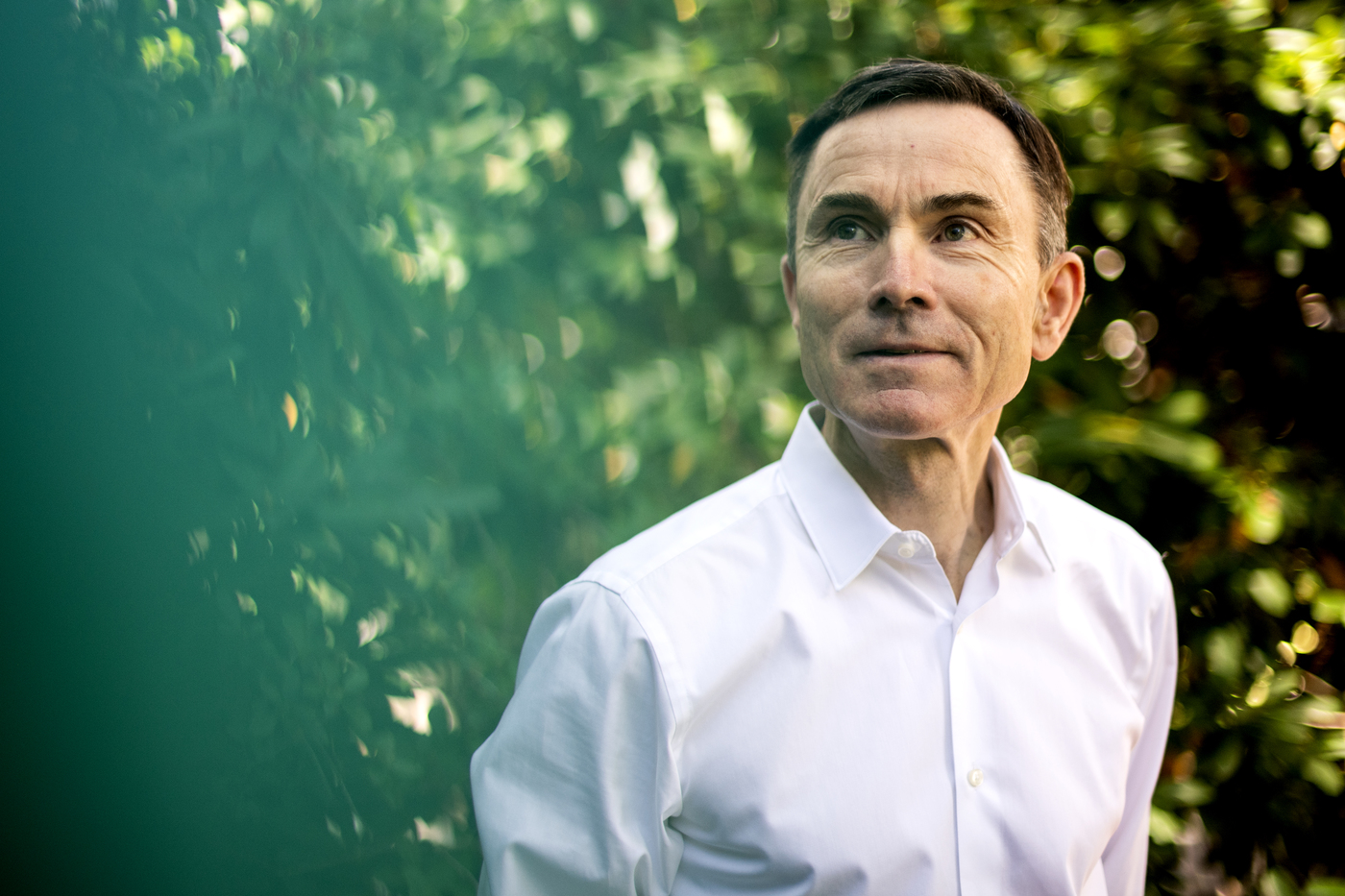David Madigan’s journey from ace statistician to Northeastern provost

Vioxx, a prescription painkiller, provoked heart attacks and strokes in many users. About 25 million people in the U.S. took the drug without knowing the potential harm.
“It’s a horror story,” says David Madigan, provost and senior vice president for academic affairs at Northeastern. “Vioxx was on the market from 1999 to 2004 and killed tens of thousands of people. It was a very dangerous drug.”
For the past two decades, Madigan, a statistician, has been providing expert testimony in legal cases against Vioxx and other hazardous products. The statements that he makes under oath are preceded by months or years of investigation. He must be prepared for cross-examinations by defense attorneys who are seeking faults in his testimony—and in him.

“It’s about as intense a level of scrutiny as your work is ever going to get,” says Madigan, his Irish accent softened by 30 years in the U.S. “What I’m nervous about—my stress, my anxiety—is I don’t want to let these people down. I think I’ve done this good work that sheds light on the issues, and I don’t want to screw it up.”
The desire to fulfill himself in the pursuit of larger causes—to do better, do more—has driven Madigan’s academic career as well as his work in the courtrooms.
“In his [university] leadership and being in the faculty—and also in the work of defending the underdog going up against large pharmaceutical multinationals—there is a real sense of wanting people to have a fair shake,” says Alondra Nelson, who worked with Madigan at Columbia University before she took on her current roles as president of the Social Science Research Council and Harold F. Linder Professor at the Institute for Advanced Study. “It is quite emblematic of his fairness, his evenhandedness, and his desire to work on the side of justice.”
Altogether, Madigan has assumed a higher level of public responsibility than he could have imagined while growing up in Athlone, a town in the rural Midlands of Ireland. Madigan was eight years old when his father died of heart disease. His two elder sisters were gone from home by then, so it was just his mother with him, though he doesn’t think of his childhood as lonely.
After school, he would do his homework in the workshop where his father’s brother was building a sailboat. Those memories are seared into him—the dusty aromas of shorn mahogany, the percussive rhythms of constructive deconstruction. So are the days and nights he spent sailing Matilda, his uncle’s boat, across Lough Ree, the lake that neighbors Athlone.
“The lake was a feature of my life,” he says.
His undergraduate degree in mathematics and Ph.D in statistics—both from Trinity College Dublin—launched Madigan into a career of pursuing his interests. His regard for the journey, rather than the destination, was affirmed when a friend called in 1990 to ask if he might be willing to leave Ireland for a teaching job at the University of Washington.
“I put my hand over the phone and said to Áine, who is now my wife, ‘What do you think of going to Seattle for a couple years?’” says Madigan, who frowns and shrugs to act out her end of the conversation. “She said, ‘Yeah, sure.’”
After nine years as a statistics professor at Washington, Madigan spent a couple of years in private research and data mining. From there he would go on to positions at Rutgers and then Columbia, serving as both dean and professor. At Columbia, Madigan oversaw an academic and research enterprise across several schools and research centers as executive vice president for arts and sciences, and also as dean of the faculty of arts and sciences. There, he elevated Nelson to become the university’s first dean of social science, and gave her the freedom to design her new role creatively.
“One of his many admirable traits as a leader is that he has faith in his ability to pick the right partners for the work that he’s doing, and then gives them autonomy and has confidence and faith in them,” Nelson says. “I was certainly a beneficiary of that special leadership and mentorship when I reported to him at Columbia.”
Along the way, Madigan’s mastery of statistics led attorneys to ask for his expert analysis of the data around Vioxx and a variety of other harmful products. What do the numbers show? What do they mean?
“In these litigations, you typically get access to documents when the court will order the companies to turn over all of the data,” Madigan says. “I’ve published quite a few papers that are related to that work. It merges with my academic life.”
Cases are still ongoing against Merck, one of the largest U.S. pharmaceutical companies. Merck took Vioxx off the market in 2004, and seven years later entered a $950 million settlement of allegations that the government had been deceived about the drug’s safety, as well as a $4.85 billion settlement with injured patients.
Madigan has also contributed to cases involving a chemotherapy agent, used mainly for breast cancer, that causes permanent hair loss, as well as litigation supporting U.S. military veterans against a manufacturer of defective earplugs.
Most famously, Madigan’s research and testimony contributed to findings against a major consumer goods manufacturer which stopped selling its talcum powder in May amid thousands of lawsuits that claimed the product caused cancer. Juries around the country have repeatedly found in favor of plaintiffs who blamed their ovarian cancer and mesothelioma on asbestos in the company’s talc products.
“Talcum powder contains asbestos,” Madigan says. “There’s no uncertainty about this. It shouldn’t be on the market. If you want to look for impact in terms of one’s work, it doesn’t get much better than that.”
This past June, Madigan made his latest move to Northeastern.
“I think I’m doing some good and moving the institution forward,” Madigan says of his work as provost. “In my career, I’ve gone from one thing to another thing to another thing, and it’s always been: What’s the next adventure? It’s been happenstance as much as anything.”
It was a few years ago that Madigan experienced a full-circle lesson on who he is and where he has been going. He happened to be speaking to a fellow from Athlone, and reminiscing about his long-ago times on his uncle’s sailboat, when the memories were interrupted.
“I might know where that boat is,” Madigan was told.
Matilda was found in Ireland. Madigan bought her and had her restored, and the past few summers he was sailing her as often as he could off Nantucket in Massachusetts.
“It’s just fantastic,” he says. “The boat is completely wooden—the mast, everything—and the mahogany and other woods are just gorgeous. It’s that smell when you step into it. The smell is just so evocative of my childhood.”
He knows the American myth of the self-made man: That in his adopted country there are meant to be the drivers who are actively creating their own destiny; and then there are passengers, following passively where life may lead them. But Madigan is neither.
The wind obstructs and jostles. It flaps and fills the sails, it braces his face like a smile. The trick is to capture the breezes and gusts, to actively explore where they may take him. There are the drivers, and the passengers, of course; and then there are the sailors.
For media inquiries, please contact media@northeastern.edu.






